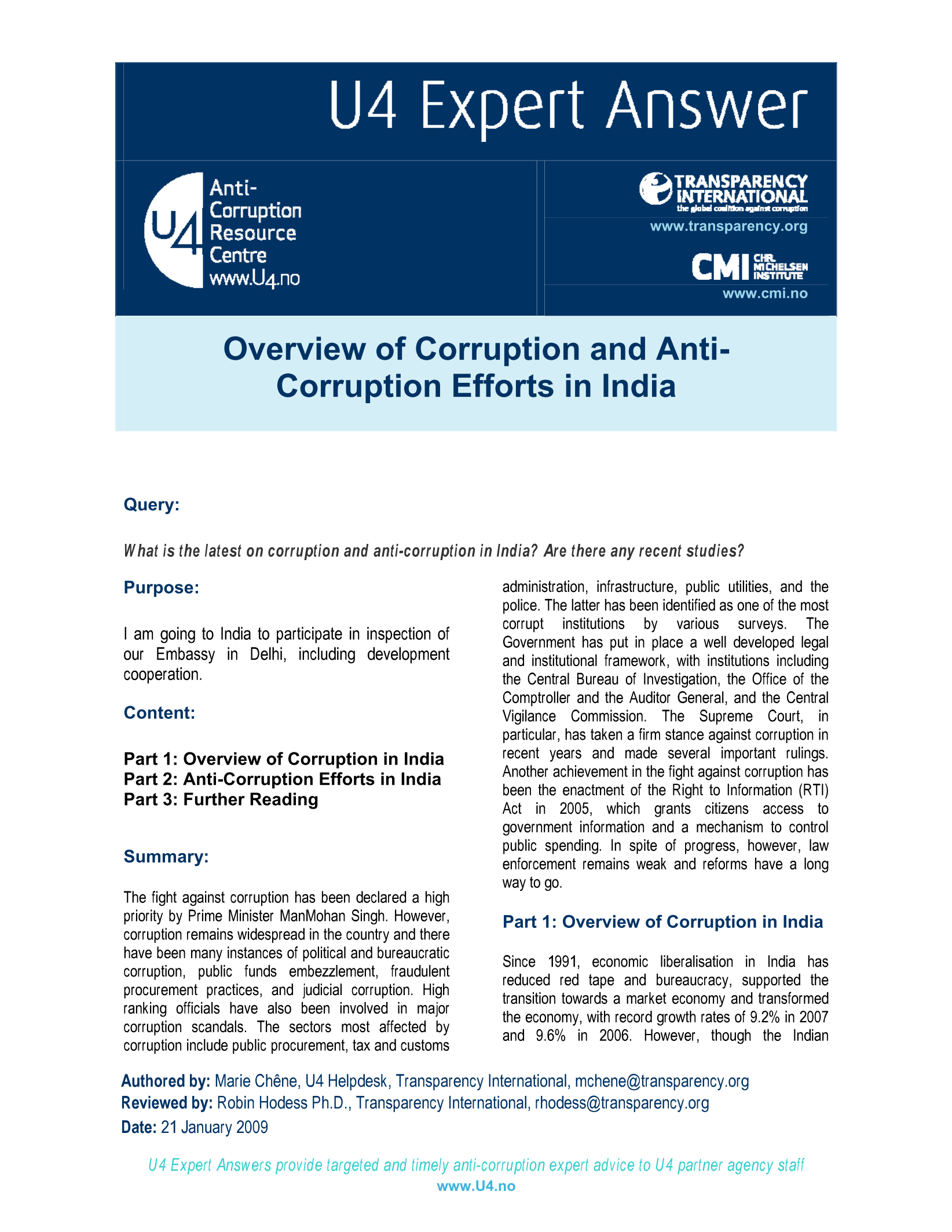U4 Helpdesk Answer
Overview of corruption and anti-corruption efforts in India
The fight against corruption has been declared a high priority by Prime Minister ManMohan Singh. However, corruption remains widespread in the country and there have been many instances of political and bureaucratic corruption, public funds embezzlement, fraudulent procurement practices, and judicial corruption. The government has put in place a well developed legal and institutional framework, with institutions including the Central Bureau of Investigation, the Office of the Comptroller and the Auditor General, and the Central Vigilance Commission. The Supreme Court, in particular, has taken a firm stance against corruption in recent years and made several important rulings. Another achievement has been the enactment of the Right to Information (RTI) Act in 2005, which grants citizens access to government information and a mechanism to control public spending. In spite of progress, however, law enforcement remains weak and reforms have a long way to go.

Cite this publication
Chêne, M. 2009. Overview of corruption and anti-corruption efforts in India. Bergen: U4 Anti-Corruption Resource Centre, Chr. Michelsen Institute (U4 Helpdesk Answer Helpdesk)
Disclaimer
All views in this text are the author(s)’, and may differ from the U4 partner agencies’ policies.
This work is licenced under a Creative Commons Attribution-NonCommercial-NoDerivatives 4.0 International licence (CC BY-NC-ND 4.0)

